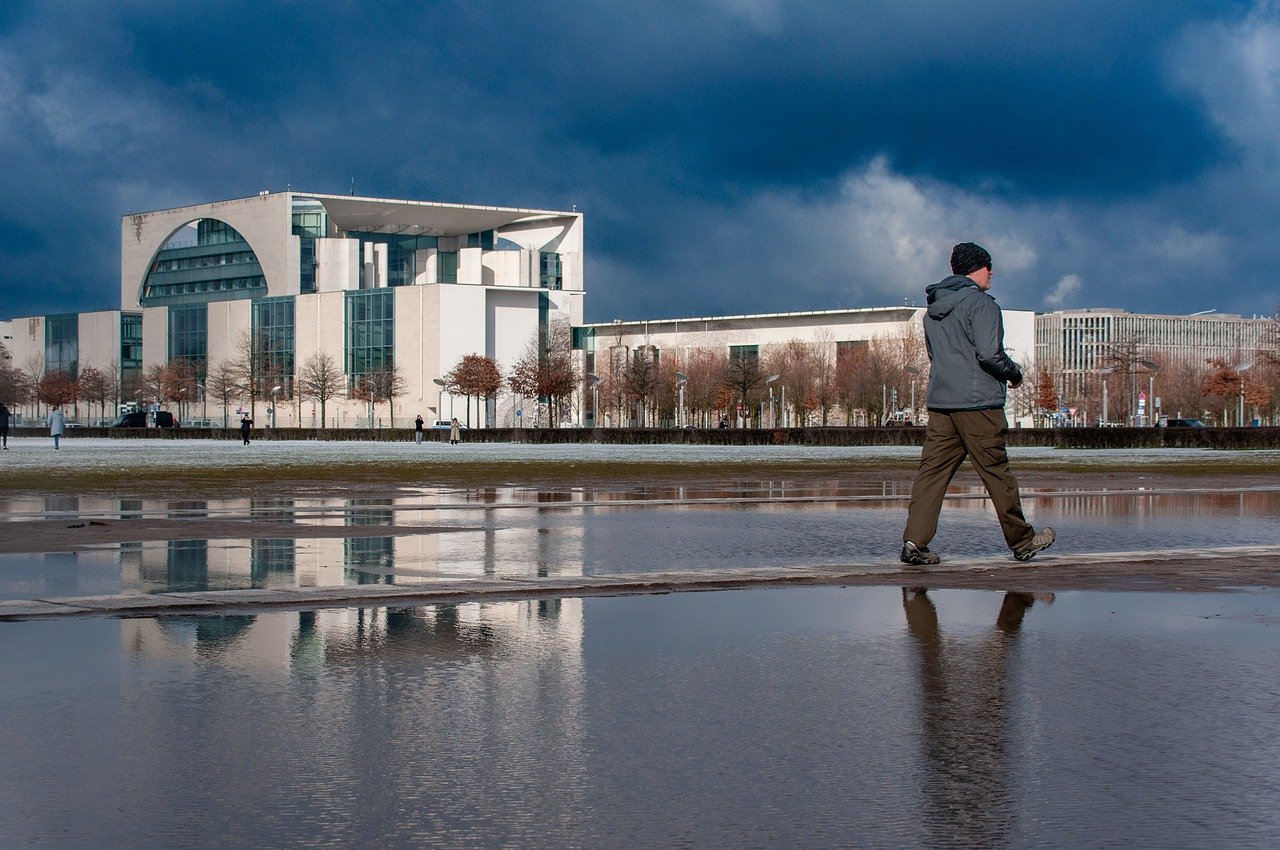Ethics in Politics - A Necessity or a Farce?
In today’s world, the intersection of ethics and politics has never been more scrutinized. We often hear the phrase, "politics is a dirty game," but is that really the case? Are ethical practices in politics a genuine necessity, or are they just a convenient facade for leaders to hide behind? The truth is, the role of ethics in politics is a complex tapestry woven from threads of public trust, accountability, and the very essence of democracy itself. As citizens, we find ourselves asking: Can we truly rely on our leaders to act with integrity, or are we merely witnessing a performance designed to placate the masses? This article aims to peel back the layers of political ethics, exploring its significance and questioning whether it is an essential component of governance or merely a theatrical act that distracts us from the real issues at hand.
Ethical standards in politics are not just a nice-to-have; they are the bedrock of a functioning democracy. Without these standards, we risk losing public trust, which is vital for any government to operate effectively. Imagine a ship sailing without a compass; that’s what a political system devoid of ethics looks like. When leaders uphold ethical practices, they foster an environment of accountability, where decisions are made transparently and responsibly. This not only encourages citizen participation but also cultivates a healthy democratic process. In essence, ethical standards act as the guiding principles that steer politicians away from the treacherous waters of corruption and misconduct. They are more than just rules; they are the moral compass that directs the course of governance.
To understand the significance of ethics in politics today, it’s crucial to look back at how past leaders navigated moral dilemmas. History is replete with examples that showcase the critical role ethics has played in governance. For instance, consider the leadership of figures like Abraham Lincoln, whose commitment to integrity during the Civil War set a precedent for ethical leadership. On the flip side, we have leaders like Richard Nixon, whose disregard for ethical norms led to the Watergate scandal and ultimately his resignation. Such pivotal moments in history highlight how ethical practices—or the lack thereof—can shape the political landscape. They serve as reminders that the moral choices made by leaders do not exist in a vacuum; they ripple through time, influencing future generations and the very fabric of society.
Examining notable political figures known for their ethical leadership provides profound insights into how integrity can influence governance. Take, for example, the leadership of Nelson Mandela, who, after enduring 27 years in prison, emerged with a vision of reconciliation rather than revenge. His ethical stance not only united a divided nation but also set a global standard for leadership. In contrast, the case of Enron’s executives illustrates how ethical failures can lead to catastrophic consequences for both individuals and society. These case studies serve as powerful narratives that remind us of the profound impact ethical decision-making can have on governance and the lives of citizens.
Ethical considerations often play a significant role in shaping public policy. When policymakers anchor their decisions in ethical frameworks, they are more likely to create laws and regulations that genuinely benefit society. For instance, policies aimed at environmental sustainability not only address immediate concerns but also reflect a commitment to future generations. By prioritizing ethics in policy formation, leaders can ensure that their decisions are not just politically expedient but also morally sound, fostering a sense of justice and equity.
When political leaders disregard ethics, the consequences can be severe. The repercussions of unethical behavior in politics often manifest as a loss of public trust, leading to political instability and disillusionment among citizens. Scandals, corruption, and abuse of power can create a toxic environment that erodes the very foundations of democracy. As we’ve seen in various instances around the globe, the fallout from ethical failures can result in protests, governmental upheaval, and a general apathy towards political engagement. It begs the question: what happens to a society when its leaders fail to uphold the ethical standards expected of them?
Modern politics faces a myriad of ethical challenges, ranging from corruption to misinformation. In an age where social media can amplify both truths and lies, the need for ethical leadership has never been more pressing. Politicians are often caught in a web of competing interests, and the temptation to prioritize personal gain over public good is ever-present. This section delves into the current landscape of political ethics, highlighting issues that require urgent attention to ensure that ethics remain at the forefront of political discourse.
Citizens play a vital role in holding politicians accountable for their ethical conduct. Active engagement and advocacy are essential in fostering a culture of ethics in politics. When individuals demand transparency and integrity from their leaders, they contribute to a political environment where ethical standards are not merely aspirational but expected. Through voting, activism, and public discourse, citizens can create a powerful force for change, ensuring that ethics remain a priority in governance.
Active advocacy and political engagement empower citizens to demand ethical behavior from their leaders. Strategies such as grassroots movements, community organizing, and leveraging social media platforms can amplify the voices of concerned citizens. By coming together, individuals can exert pressure on politicians to adhere to ethical standards, creating a ripple effect that can lead to significant political reform.
Education on political ethics is essential for informed citizenry. Various initiatives aimed at raising awareness about the importance of ethics in politics and governance can equip citizens with the knowledge they need to hold their leaders accountable. Workshops, seminars, and online resources can serve as valuable tools in fostering a more ethically conscious electorate, ensuring that the principles of integrity and accountability are not just buzzwords but a way of life.
- Why are ethics important in politics? Ethics are crucial in politics as they foster trust, accountability, and transparency, which are essential for effective governance.
- What are some historical examples of ethical leadership? Notable figures like Nelson Mandela and Abraham Lincoln exemplify ethical leadership, showcasing the impact of integrity on governance.
- How can citizens promote ethical behavior in politics? Citizens can promote ethics through advocacy, political engagement, and education, holding leaders accountable for their actions.

The Importance of Ethical Standards
When we think about politics, the first thing that often comes to mind is power. But what if I told you that the true backbone of effective governance isn't just power, but rather ethical standards? These standards are not merely guidelines; they are the bedrock upon which public trust is built. Imagine a world where politicians act with integrity, where decisions are made transparently, and where the needs of the community come first. Sounds utopian, right? Yet, this is precisely why ethical standards are essential in politics.
Ethical standards serve as a compass, guiding political leaders in their decision-making processes. Without them, the risk of corruption and abuse of power skyrockets. When politicians prioritize their personal agendas over the welfare of the public, the very fabric of democracy begins to unravel. This is where the importance of ethics comes into play. They are crucial for:
- Maintaining Public Trust: Citizens are more likely to engage with and support their government when they believe it is operating ethically. Trust is a two-way street; when leaders act ethically, they inspire confidence among the populace.
- Ensuring Accountability: Ethical standards create a framework for holding politicians accountable for their actions. When there are clear ethical guidelines, it becomes easier to identify and rectify misconduct.
- Fostering Democratic Processes: A healthy democracy thrives on participation, and ethical governance encourages citizens to be active participants rather than passive observers.
Think about it: how would you feel if you discovered that your elected officials were making decisions based on personal gain rather than the needs of the community? Frustrated? Disillusioned? You’re not alone. When ethical standards are absent, the result is often a disenchanted electorate, leading to political apathy and disengagement. In contrast, when ethics are at the forefront, they cultivate an environment where citizens feel empowered to voice their opinions and influence policy.
Moreover, ethical standards are not just beneficial for the public; they also provide political leaders with a clear framework for decision-making. When faced with difficult choices, having a set of ethical guidelines can help leaders navigate complex issues with integrity and purpose. This is especially crucial in today’s fast-paced political landscape, where the stakes are high, and the pressure is immense. Ethical standards act as a safety net, ensuring that leaders remain grounded and focused on the greater good.
In summary, the importance of ethical standards in politics cannot be overstated. They are essential for maintaining public trust, ensuring accountability, and fostering an engaged citizenry. Without them, the political landscape becomes a breeding ground for corruption and mistrust. So, the next time you hear about a political scandal, remember that it is often a reflection of a failure to uphold ethical standards. Let's advocate for a political system where ethics are not just an afterthought but are woven into the very fabric of governance.

Historical Perspectives on Political Ethics
When we delve into the annals of history, we uncover a rich tapestry of political ethics that has shaped governance as we know it today. From ancient civilizations to modern democracies, the ethical dilemmas faced by leaders reveal a constant struggle between personal ambition and the greater good. For instance, consider the Roman statesman Cicero, who championed the idea that ethics should guide political actions. His belief that "the safety of the people shall be the highest law" resonates even in contemporary discussions about political integrity.
As we move through history, we encounter pivotal moments that highlight the evolving nature of political ethics. During the Renaissance, Machiavelli's seminal work, "The Prince," stirred controversy by suggesting that the ends justify the means. This pragmatic approach to governance raised questions: Should leaders prioritize results over morality? Machiavelli's ideas sparked debates that continue to this day, forcing us to evaluate the ethical boundaries of leadership.
In more recent times, the post-World War II era brought forth a renewed focus on ethics in politics. The Nuremberg Trials established a precedent for holding leaders accountable for their actions, emphasizing that "just following orders" is not a valid excuse for unethical behavior. This marked a significant shift in how societies view the relationship between ethics and governance.
To further illustrate the historical context, let's take a look at a few key figures and events that have influenced political ethics over the centuries:
| Historical Figure/Event | Contribution to Political Ethics |
|---|---|
| Cicero | Advocated for the moral responsibilities of leaders and the importance of public trust. |
| Machiavelli's "The Prince" | Introduced the controversial idea of pragmatism in political ethics. |
| Nuremberg Trials | Set a precedent for international accountability and ethical governance. |
| Watergate Scandal | Highlighted the need for transparency and integrity in political offices. |
These historical perspectives not only inform our understanding of political ethics but also serve as a cautionary tale for contemporary leaders. The lessons learned from past ethical failures remind us that integrity in politics is not merely a luxury but a necessity for sustainable governance.
As we reflect on these historical narratives, one can't help but wonder: Are we repeating the mistakes of the past, or are we learning and evolving? The ethical landscape of politics is complex, and it continuously challenges us to uphold the values that foster trust and accountability. In the next sections, we will explore how these historical insights shape modern ethical challenges and the role of citizens in promoting ethical governance.
- What is the significance of ethics in politics? Ethics in politics is essential for maintaining public trust and ensuring accountable governance.
- How have historical events shaped political ethics today? Historical events have provided lessons that inform current ethical standards and practices in governance.
- Can citizens influence political ethics? Yes, active citizen engagement and advocacy can significantly impact the ethical conduct of political leaders.

Case Studies of Ethical Leadership
When we think about ethical leadership in politics, a few shining examples come to mind. These leaders, through their actions and decisions, have set the bar high for what it means to govern with integrity. One of the most notable figures is Nelson Mandela. His commitment to reconciliation and social justice in post-apartheid South Africa exemplifies ethical leadership. Rather than seeking revenge or retribution, Mandela focused on healing a fractured nation, emphasizing the importance of forgiveness and unity. His leadership style was not just about making laws; it was about creating a moral framework that inspired millions.
Another remarkable case is that of Angela Merkel, the former Chancellor of Germany. Merkel's tenure is often characterized by her calm demeanor and rational decision-making. During the European debt crisis, she faced immense pressure but chose to prioritize economic stability over populism. Her ethical approach to governance involved making tough decisions that sometimes went against popular opinion, yet she remained steadfast in her commitment to the European Union and its values. Merkel's leadership illustrates how ethical considerations can guide policy decisions that benefit the greater good, even in turbulent times.
Let’s not forget about Jacinda Ardern, the former Prime Minister of New Zealand, who gained international acclaim for her empathetic leadership style. In the wake of the Christchurch mosque shootings, Ardern's immediate response was to offer support to the Muslim community and advocate for gun law reforms. This not only showcased her ethical stance on human rights but also highlighted how leaders can shape public policy through compassionate governance. Her approach serves as a reminder that ethical leadership is not just about policy; it’s about the humanity behind those policies.
These case studies demonstrate that ethical leadership is not merely a theoretical concept; it is a practice that can have profound implications for society. Ethical leaders create a culture of trust and accountability, which is essential for effective governance. They inspire others to act with integrity and encourage citizens to engage in the political process. By examining the actions of leaders like Mandela, Merkel, and Ardern, we see that ethical leadership can lead to positive change and foster a sense of community, even in the face of adversity.
| Leader | Country | Key Ethical Action |
|---|---|---|
| Nelson Mandela | South Africa | Promoted reconciliation and social justice |
| Angela Merkel | Germany | Prioritized economic stability during the debt crisis |
| Jacinda Ardern | New Zealand | Advocated for gun law reforms post-Christchurch shootings |
In conclusion, examining these case studies reveals that ethical leadership is a powerful catalyst for change. It not only influences policy but also shapes the very fabric of society. As we navigate the complexities of modern politics, let us remember the lessons learned from these leaders and strive to uphold ethical standards in our own political engagements.

Impact on Policy Formation
When we talk about the impact of ethics on policy formation, it's essential to understand that ethical considerations act as the backbone of effective governance. Imagine a ship navigating through turbulent waters; without a strong moral compass, it can easily veer off course. In politics, ethical frameworks help guide decision-makers, ensuring that the policies they create are not only beneficial but also just and equitable. Ethical policies are like a well-tended garden; they require care and attention to flourish, providing a healthy environment for society to thrive.
One of the most significant ways ethics influences policy formation is through the establishment of trust between the government and its citizens. When leaders prioritize ethical standards, they foster a sense of reliability and transparency. This trust is crucial because it encourages public participation in the democratic process. Citizens are more likely to engage in discussions about policies that affect their lives when they believe that their leaders are acting ethically. In this sense, ethical governance is not just about the actions of politicians but also about creating a culture of accountability that resonates with the public.
Moreover, ethical considerations help in addressing complex societal issues. For instance, when formulating policies on healthcare, education, or environmental protection, ethical frameworks guide policymakers to consider the broader implications of their decisions. They must weigh the needs of different stakeholders, ensuring that the policies implemented do not disproportionately benefit one group over another. This balancing act is where ethics shines, as it compels leaders to think critically about the long-term effects of their decisions.
To illustrate the impact of ethics on policy formation, let’s consider a few key areas:
- Public Health: Ethical considerations in public health policies ensure that vulnerable populations receive adequate care and resources. This is particularly evident in policies addressing pandemics, where equity in vaccine distribution is paramount.
- Environmental Policies: Ethical frameworks drive the creation of sustainable policies that protect the environment for future generations. Policymakers are increasingly held accountable for the ecological consequences of their decisions.
- Social Justice: Policies aimed at promoting social justice often stem from ethical imperatives, ensuring that marginalized communities have a voice in the decision-making process.
In conclusion, the impact of ethics on policy formation cannot be overstated. It is a crucial element that shapes the effectiveness and integrity of governance. By prioritizing ethical frameworks, policymakers can create laws and regulations that not only address immediate societal needs but also pave the way for a just and equitable future. The ripple effect of ethical decision-making ultimately leads to a more engaged and trusting citizenry, which is fundamental for a thriving democracy.
Q: Why are ethical standards important in politics?
A: Ethical standards are vital for maintaining public trust, ensuring accountability, and fostering a healthy democratic process. They help guide decision-making and promote fairness in governance.
Q: How can citizens influence political ethics?
A: Citizens can influence political ethics by engaging in advocacy, participating in public discourse, and holding their leaders accountable through voting and activism.
Q: What are some historical examples of ethical leadership?
A: Notable examples include figures like Nelson Mandela and Mahatma Gandhi, who navigated moral dilemmas with integrity and inspired ethical governance in their respective countries.
Q: What consequences arise from unethical behavior in politics?
A: Unethical behavior can lead to loss of public trust, political instability, and a breakdown of the democratic process, ultimately harming society as a whole.

Consequences of Ethical Failures
When political leaders choose to disregard ethical standards, the repercussions can be both profound and far-reaching. Imagine a ship navigating through stormy seas without a compass; that’s what happens when ethics are thrown overboard in politics. The immediate fallout often includes a loss of public trust. Citizens expect their leaders to act with integrity, and when those expectations are shattered, it creates a rift that can take years to mend. Trust is like a fragile glass; once broken, it can be incredibly difficult to piece back together.
Furthermore, unethical behavior can lead to political instability. When leaders engage in corrupt practices or make decisions based on personal gain rather than the common good, it breeds disillusionment among the electorate. This discontent can manifest in various ways, such as protests, civil unrest, or even a complete upheaval of the political system. The consequences of such instability can be dire, leading not only to a loss of governance but also to a decline in social order.
In addition to these immediate effects, ethical failures can have long-term consequences that ripple through society. For instance, policies enacted under dubious circumstances may favor a select few, exacerbating inequality and injustice. This can lead to a cycle of disenfranchisement where certain groups feel marginalized and powerless, further eroding the democratic fabric of society.
Moreover, the economic implications of unethical political behavior cannot be overlooked. Corruption often leads to misallocation of resources, resulting in poor public services and infrastructure. For example, when funds meant for education or healthcare are siphoned off for personal gain, it not only harms the immediate beneficiaries but also stunts the growth of the entire nation.
To illustrate the severity of these consequences, consider the following table that outlines some common repercussions of ethical failures in politics:
| Consequence | Description |
|---|---|
| Loss of Public Trust | Citizens become skeptical of political leaders and institutions, leading to apathy and disengagement. |
| Political Instability | Unethical behavior can trigger protests, civil unrest, or even regime changes. |
| Social Inequality | Policies favoring the elite can deepen societal divides and marginalize vulnerable populations. |
| Economic Decline | Corruption leads to misallocation of resources, negatively impacting public services and infrastructure. |
In conclusion, the consequences of ethical failures in politics extend far beyond the immediate fallout. They create a ripple effect that can destabilize societies, harm economies, and erode the very foundations of democracy. Therefore, it is crucial for both leaders and citizens to prioritize ethical behavior to ensure a thriving political environment.
- What are some common examples of ethical failures in politics? Ethical failures can include corruption, abuse of power, and lack of transparency in decision-making.
- How can citizens hold politicians accountable for their actions? Citizens can engage in advocacy, participate in elections, and use social media to raise awareness about unethical behavior.
- Why is public trust important in politics? Public trust is essential for effective governance, as it fosters cooperation between citizens and their leaders.
- What role does education play in promoting political ethics? Education raises awareness about the importance of ethics in governance and empowers citizens to demand accountability.

Contemporary Ethical Challenges
In today's fast-paced political landscape, we find ourselves grappling with a myriad of ethical challenges that threaten the very foundation of our democratic systems. These challenges are not merely abstract concepts; they impact our daily lives and shape the policies that govern us. One of the most pressing issues is corruption, which has seeped into every level of governance. From local municipalities to national governments, the misuse of power for personal gain undermines public trust and erodes the integrity of institutions.
Moreover, the rise of misinformation has created a new battleground for ethical dilemmas. In an age where information spreads like wildfire, distinguishing between fact and fiction can be incredibly challenging. Politicians and their supporters often exploit this environment to manipulate public opinion, leading to a culture where truth becomes subjective. This manipulation not only misguides voters but also poses serious questions about the ethical responsibilities of those in power.
Additionally, the influence of money in politics cannot be overlooked. Campaign financing has become a significant ethical concern, as large donations from corporations and special interest groups can skew political agendas. This raises a critical question: should financial contributions dictate policy decisions? The answer seems clear—when politicians prioritize the interests of their donors over their constituents, the very essence of democracy is compromised.
Another contemporary challenge is the treatment of marginalized communities. Ethical governance requires that all voices are heard, yet systemic inequalities often lead to the disenfranchisement of certain groups. Politicians must navigate the complex waters of representation, ensuring that their policies are inclusive and equitable. Failure to do so not only perpetuates injustice but also reflects a profound ethical lapse in leadership.
To further illustrate these challenges, consider the following table that outlines key contemporary ethical issues in politics:
| Ethical Challenge | Description | Potential Impact |
|---|---|---|
| Corruption | Misuse of power for personal gain | Erosion of public trust |
| Misinformation | Spread of false information to manipulate public opinion | Manipulated voter behavior |
| Money in Politics | Influence of large donations on policy decisions | Skewed political agendas |
| Marginalization | Failure to represent marginalized communities | Perpetuation of systemic inequalities |
As we navigate these challenges, it becomes increasingly important for citizens to remain vigilant and engaged. The responsibility does not solely rest on the shoulders of politicians; it is a collective effort to foster a political culture that prioritizes ethics over convenience. By holding leaders accountable and demanding transparency, we can begin to address these contemporary ethical challenges head-on.
- What are the main ethical challenges in contemporary politics?
The main challenges include corruption, misinformation, the influence of money in politics, and the marginalization of certain communities.
- How can citizens promote ethical behavior in politics?
Citizens can promote ethical behavior by engaging in advocacy, demanding transparency, and holding politicians accountable for their actions.
- Why is ethics important in politics?
Ethics in politics is crucial for maintaining public trust, ensuring accountability, and fostering a healthy democratic process.

The Role of Citizens in Promoting Ethics
In a world where political scandals seem to dominate the headlines, the role of citizens in promoting ethics has never been more crucial. Imagine a ship navigating through stormy seas; the captain may steer the helm, but it is the crew that keeps the ship afloat. In the same way, citizens are the backbone of a democratic society, holding politicians accountable and ensuring that ethical standards are not just a lofty ideal but a lived reality. But how do we, as everyday individuals, contribute to the ethical fabric of our political landscape?
First and foremost, it is essential for citizens to engage actively in the political process. This means not just voting during elections but also participating in town hall meetings, engaging in discussions, and voicing concerns about ethical practices. When citizens make their voices heard, they send a powerful message to elected officials: ethics matter. For instance, grassroots movements have historically played a significant role in advocating for ethical reforms. They demonstrate that when people unite for a common cause, they can influence policy changes that align with ethical standards.
Furthermore, citizens can promote ethics by becoming informed voters. This involves researching candidates’ backgrounds, understanding their positions on various issues, and scrutinizing their past behaviors. Knowledge is power! The more informed a citizen is, the better equipped they are to make decisions that reflect their values and ethics. To aid in this process, many organizations provide resources that compare candidates' stances on ethical issues, which can serve as a valuable guide during elections.
Another vital aspect of promoting ethics is advocacy. Citizens can advocate for transparency and accountability in government by supporting legislation that requires disclosure of campaign finances, lobbying activities, and potential conflicts of interest. When citizens demand transparency, they create an environment where unethical behavior is less likely to thrive. For example, the Freedom of Information Act has empowered citizens to request information from the government, allowing them to hold public officials accountable for their actions.
Moreover, education plays a pivotal role in shaping an ethical political culture. Initiatives aimed at raising awareness about political ethics can significantly impact how citizens perceive their responsibilities. Schools, community organizations, and civic groups can offer workshops and seminars focused on the importance of ethics in governance. When citizens understand the implications of unethical behavior—such as corruption, misinformation, and abuse of power—they are more likely to take action against it.
Lastly, the digital age has transformed how citizens engage with politics. Social media platforms provide a powerful tool for promoting ethical behavior. Citizens can share information, raise awareness about unethical practices, and mobilize support for ethical initiatives. However, with great power comes great responsibility. It is crucial for citizens to critically evaluate the information they encounter online and to promote a culture of fact-checking and truthfulness. By doing so, they can combat misinformation and uphold the integrity of political discourse.
In conclusion, the responsibility of promoting ethics in politics does not rest solely on the shoulders of elected officials; it is a collective duty that requires active participation from all citizens. By engaging in the political process, staying informed, advocating for transparency, and educating themselves and others, citizens can shape a political landscape that prioritizes ethics. Remember, just as a single drop can create ripples in a pond, each citizen's actions can lead to significant changes in the political realm.
- How can I get involved in promoting ethics in my community?
Consider joining local advocacy groups, attending town hall meetings, or volunteering for campaigns that align with your ethical values. - What resources are available for educating myself on political ethics?
Many organizations provide online courses, workshops, and literature focused on political ethics. Local libraries often have resources as well. - How can social media influence political ethics?
Social media can be a powerful tool for raising awareness, mobilizing support, and holding politicians accountable for unethical behavior.

Advocacy and Political Engagement
In today’s fast-paced world, where information spreads like wildfire, the role of advocacy and political engagement has become more crucial than ever. Citizens are no longer passive observers in the political arena; they are active participants who wield the power to influence change. But how can individuals effectively engage in advocacy? The answer lies in understanding the channels available and recognizing the impact of collective action.
Advocacy is not just about shouting from the rooftops; it’s about strategic communication and building coalitions. When citizens come together to voice their concerns, they create a ripple effect that can reach the highest echelons of power. For instance, grassroots movements have proven time and again that when a community unites for a common cause, they can challenge even the most entrenched political systems. Think of it as a game of tug-of-war; the more people pulling on one side, the stronger the force becomes.
Moreover, political engagement doesn’t only happen during election cycles. It’s a continuous process that involves staying informed, participating in town hall meetings, and engaging with representatives. For example, writing letters, making phone calls, or even sending emails to elected officials can significantly impact their decision-making. Imagine if thousands of constituents voiced their opinions on a critical issue; politicians would be hard-pressed to ignore such a chorus!
To empower citizens in their advocacy efforts, several strategies can be employed:
- Educate Yourself: Knowledge is power. Understanding the political landscape, including key issues and the positions of various stakeholders, equips citizens to engage more effectively.
- Utilize Social Media: Platforms like Twitter, Facebook, and Instagram can amplify voices and mobilize support quickly. A single tweet can spark a movement!
- Join Advocacy Groups: Collaborating with organizations that align with your values can enhance your impact. These groups often have established networks and resources that can bolster your efforts.
As we navigate the complexities of modern governance, it’s essential to remember that advocacy is a powerful tool for change. It transforms individual voices into a collective roar that can steer political agendas and hold leaders accountable. When citizens actively engage in the political process, they not only advocate for their interests but also contribute to a healthier democracy.
Q1: What is the best way to start advocating for a cause?
A1: Begin by educating yourself about the issue you care about. Join local groups, attend meetings, and connect with like-minded individuals. The more informed you are, the more effective your advocacy will be!
Q2: How can social media help in political engagement?
A2: Social media platforms allow you to share information quickly, mobilize support, and engage with a broader audience. They can also serve as a tool to hold politicians accountable by making their actions visible to the public.
Q3: Is political engagement only important during elections?
A3: Absolutely not! Political engagement is a year-round activity. Staying involved in local issues, attending community meetings, and communicating with elected officials is essential for maintaining a vibrant democracy.

Education and Awareness Initiatives
In today's fast-paced world, where political landscapes are constantly shifting, play a pivotal role in shaping the ethical framework of governance. These initiatives are designed not only to inform citizens about their rights and responsibilities but also to cultivate a deeper understanding of the ethical implications of political decisions. When citizens are educated about political ethics, they become empowered to demand accountability and transparency from their leaders. This empowerment can lead to a more robust democracy where ethical considerations are at the forefront of policy-making.
One effective way to promote education on political ethics is through community workshops and seminars. These events can be organized by local organizations, universities, or even government bodies. They provide a platform for discussion and engagement, allowing participants to explore the complexities of ethical dilemmas in politics. By bringing together experts, activists, and community members, these workshops can foster a collaborative environment where individuals can learn from one another. Imagine a town hall meeting where citizens discuss the moral implications of a proposed law; this not only raises awareness but also encourages civic participation.
Moreover, educational institutions play a crucial role in embedding ethical considerations into the curriculum. Schools and colleges can introduce courses focused on political ethics, encouraging students to analyze historical and contemporary case studies. This academic approach helps students develop critical thinking skills and a nuanced understanding of how ethical frameworks influence governance. By integrating ethics into the educational system, we are essentially planting the seeds of integrity in future leaders. For instance, a high school debate team could focus on ethical dilemmas in current events, promoting discussion and engagement among young minds.
In addition to formal education, digital platforms are increasingly becoming vital tools for raising awareness about political ethics. Social media campaigns, informative blogs, and online courses can reach a broader audience, breaking down geographical barriers. These platforms allow for real-time discussions and sharing of resources, making ethical education accessible to everyone. Imagine scrolling through your social media feed and coming across a thought-provoking article about political corruption; such content can spark conversations and inspire action among readers.
Furthermore, grassroots movements and advocacy groups are essential in pushing for ethical standards in politics. These organizations often conduct awareness campaigns that highlight the importance of ethics in governance. They can mobilize communities to participate in discussions, sign petitions, or even attend rallies focused on ethical issues. By harnessing the collective power of citizens, these initiatives can create a ripple effect, leading to significant changes in political accountability. For example, a community-led initiative that raises awareness about campaign financing can lead to greater scrutiny of political donations, ultimately fostering a culture of transparency.
Ultimately, the success of education and awareness initiatives hinges on active participation from both citizens and political leaders. When politicians prioritize ethical education, they set a precedent that encourages citizens to demand similar standards. It creates a symbiotic relationship where both parties are invested in upholding ethical practices. This relationship can be visualized as a dance, where each partner must be in sync to create a harmonious outcome. Without this collaboration, the efforts to promote ethics in politics may fall flat.
In conclusion, education and awareness initiatives are not merely supplementary; they are essential for nurturing a politically informed and ethically engaged citizenry. As we continue to navigate the complexities of modern governance, it is crucial to invest in these initiatives to ensure that ethics remain a cornerstone of political integrity.
- What are the main goals of education and awareness initiatives in politics?
The primary goals are to inform citizens about their rights, promote understanding of political ethics, and empower individuals to hold leaders accountable. - How can citizens get involved in these initiatives?
Citizens can participate by attending workshops, engaging in community discussions, and supporting advocacy groups focused on ethical governance. - Why is it important to integrate ethics into education?
Integrating ethics into education helps develop critical thinking skills and prepares future leaders to navigate moral dilemmas in governance.
Frequently Asked Questions
- What is the significance of ethics in politics?
Ethics in politics is crucial for maintaining public trust and ensuring that leaders act in the best interests of their constituents. When politicians adhere to ethical standards, it fosters accountability and strengthens the democratic process, making governance more effective.
- Can you provide examples of historical figures known for their ethical leadership?
Absolutely! Historical figures like Abraham Lincoln and Mahatma Gandhi are often cited for their ethical leadership. Lincoln’s commitment to equality and justice during the Civil War and Gandhi’s philosophy of non-violence and truth exemplify how integrity can influence governance positively.
- What are the consequences of unethical behavior in politics?
Unethical behavior can lead to severe consequences, including a loss of public trust, political instability, and even legal repercussions for the leaders involved. When citizens feel their leaders are dishonest, it can erode the very foundations of democracy.
- How can citizens promote ethical behavior in politics?
Citizens can promote ethical behavior by staying informed, voting responsibly, and engaging in advocacy. By holding politicians accountable and demanding transparency, the public can foster a culture of ethics that influences political conduct.
- What role does education play in political ethics?
Education is vital for raising awareness about the importance of ethics in politics. Initiatives that teach citizens about their rights and the ethical responsibilities of their leaders empower them to engage more effectively in the political process.
- What are some contemporary ethical challenges in politics?
Modern politics faces numerous ethical challenges, including corruption, misinformation, and the influence of money in politics. Addressing these issues requires vigilance and active participation from citizens to ensure that ethical standards are upheld.



















